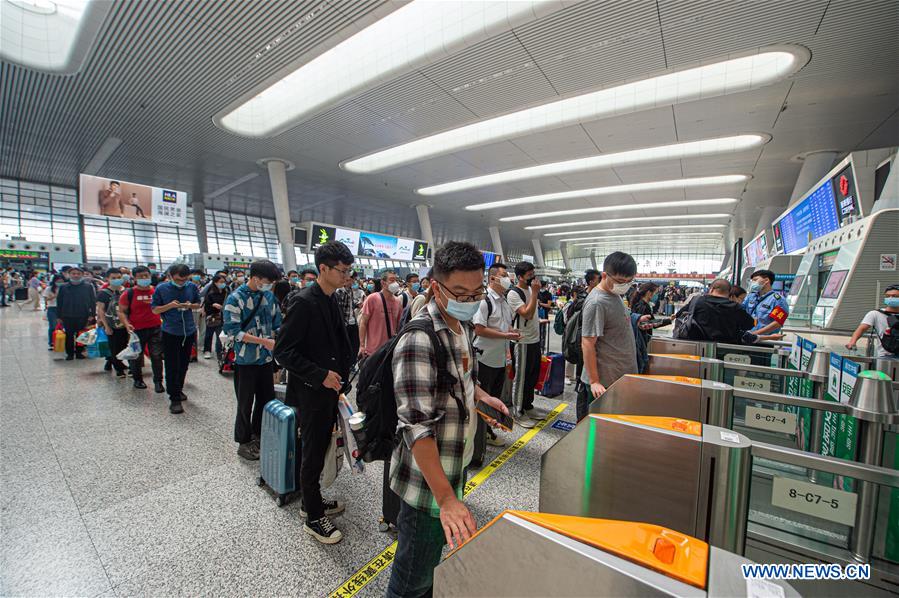National Day holiday helps travel recovery
- By Mitchell Blatt
 0 Comment(s)
0 Comment(s) Print
Print E-mail China.org.cn, October 4, 2020
E-mail China.org.cn, October 4, 2020

China's National Day holiday, also dubbed "Golden Week," is underway, and this year it is special for more reasons than usual.
National Day and the Mid-Autumn Festival fall on the same day, October 1, for the first time since 2001. It's also the first National Day since the coronavirus pandemic started prompting an aggressive response to contain it. There's every sign people are responding to an atmosphere of normality.
According to indications from ticket sales at Qunar.com, domestic air travel is making a strong recovery from the COVID-19 slump. The volume of domestic flights in August was 95% of the volume in 2019 and is likely to achieve a new record thanks to the holidays.
HSBC Global Research reports that China's big three, Air China, China Eastern, and China Southern Airlines, are all expected to report a profit in Q3. There was an upward trend in Q2, with China Southern cutting its losses in half from Q1.
There are a few reasons for the positive signs that are emerging. First, the spread of new coronavirus cases is minimal. Less than 200 cases have been reported in the whole country in September. After the depressing situation earlier in the year, with everyone having to stay at home January through April, people are scrambling for the chance of safe travel.
Also, flight tickets are still quite cheap. Reuters reported that tickets from Beijing to Hangzhou were selling for as low as 180 yuan ($26). China Eastern Airlines offered a six-month unlimited flight pass for 3,456 yuan ($500). Ordinarily the bulk of "Golden Week" domestic travel is over the extensive high speed rail network, but low flight prices help make flying quite competitive.
Finally, it is still very difficult to travel overseas, right now. Many countries have closed their borders. Almost every country has a worse coronavirus outbreak than China. And traveling overseas means having to quarantine for 14 days. So, the millions of people who would have taken an overseas trip will instead be traveling domestically.
Most of the countries neighboring China, which are popular for tourism, are either closed or require this quarantine period. Australia and Japan are still completely closed. Most of Southeast Asia is only slowly reopening the tourism sector.
Anyone able to enter South Korea, Vietnam, Thailand, Singapore, and other countries, in any case, has to pay to be held in a government facility. Then, upon arrival back to China, they have to be quarantined again for two weeks. That's four weeks of quarantine when there's only one week of holiday.

During "Golden Week" in 2018, 726 million Chinese took domestic trips, and went abroad. Besides an increase in air travel and other forms of domestic trips, 2020 will also see many people enjoying their home towns' attractions.
Life in China is very close to normal. Consumption is up, restaurants are packed, concerts are being held, and museums are open. Other countries should perhaps take lessons from China. That is, if you take aggressive measures and can bring the coronavirus under control, then you can return to life as normal, rather than living constantly under fear and restrictions indefinitely.
Mitchell Blatt is a columnist with China.org.cn. For more information please visit:
http://www.china.org.cn/opinion/MitchellBlatt.htm
Opinion articles reflect the views of their authors, not necessarily those of China.org.cn.
If you would like to contribute, please contact us at opinion@china.org.cn.






Go to Forum >>0 Comment(s)